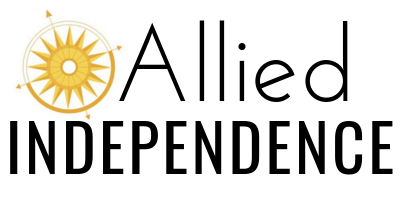The Art of Balancing Passion and Profession as a CVI Expert
In the world of education, the journey of a dedicated teacher is often a balancing act. Lisha Yochimowitz, a seasoned Teacher of the Visually Impaired (TVI), shared valuable insights about her career, the challenges faced by educators, and the importance of maintaining a healthy balance between work and personal life. Lisha's journey, which spans over 25 years, is a testament to the dedication and passion that drives many teachers in this demanding yet fulfilling field.
Embracing Multiple Roles in Education for Students with Visual Impairment
“We all bring something to the table, even if we're a little inexperienced, even if we feel a little insecure.”
Lisha's career began with a dual certification in elementary and special education, which led her to the Overbrook School for the Blind in Philadelphia. Over the years, she transitioned to working as an itinerant teacher, specializing in Cortical Visual Impairment (CVI), a field she is deeply passionate about. Currently, she balances a full caseload of K-12 students while also serving as a content manager for Paths to Literacy, an online resource for teachers and families.
Lisha highlights the reality that many educators, particularly women, often find themselves taking on multiple roles. This drive to help others can sometimes lead to overwhelming workloads, making it crucial to establish boundaries and find balance.
Carving Out Space: Prioritizing Family and Self-Care
Lisha discusses the difficulty of saying no when there is a need that they can meet. This tendency to overextend can lead to burnout, which is why Lisha emphasizes the importance of setting personal boundaries. She shares her own strategies, such as being selective about who has access to her personal phone number and keeping her personal and professional lives separate on social media.
Lisha agrees on the importance of creating space for family and self-care. She also mentions the need to set aside time for family, which she does by not answering work-related calls or emails during family time. This practice not only helps maintain her own well-being but also ensures she can be fully present for her students when needed.
Advocating for Fair Compensation: Why it Matters
“Helping each other along the way and being open and honest about our needs as a teacher, just supporting what we need to be the best and the brightest, but then when we feel that we can our cup is full, that we can also help others fill their cups, and then when all our cups are filled, we can give everything that we want to give our students and their families.”
Lisha also touches on a critical issue in education: fair compensation. While many teachers are driven by a passion for helping others, Lisha reminds listeners that it is important to advocate for fair wages. She argues that if the education field is to attract and retain the best and brightest, it must offer competitive salaries that reflect the hard work and expertise of its professionals.
She acknowledges the delicate balance between doing what she loves and earning a living, emphasizing that teachers should not feel guilty for wanting both. Her advice to new educators is to advocate for themselves and not be afraid to set boundaries that protect their time and energy.
The Key to Sustained Passion: Finding Joy and Purpose
Despite the challenges, Lisha finds immense joy in her work. She describes her favorite days as those spent directly teaching students, rather than sitting behind a computer. For her, the connection with students is what fuels her passion for teaching. This sense of purpose is something she believes is shared by many in the field, and it is what keeps her going, even on the toughest days.
Lisha’s reflections offer a powerful reminder of the importance of balance, self-advocacy, and maintaining a strong sense of purpose in the teaching profession. Her insights are not only valuable for fellow educators but for anyone striving to find harmony between their professional and personal lives.
Topics:
teacher of students with visual impairments, visual impairments progress and challenges, self-advocacy, awareness, student growth, impactful teaching practices, empowering students, empowering teachers of students with visual impairments, cvi, cortical cerebral vision impairment, work-life balance, fair compensation
